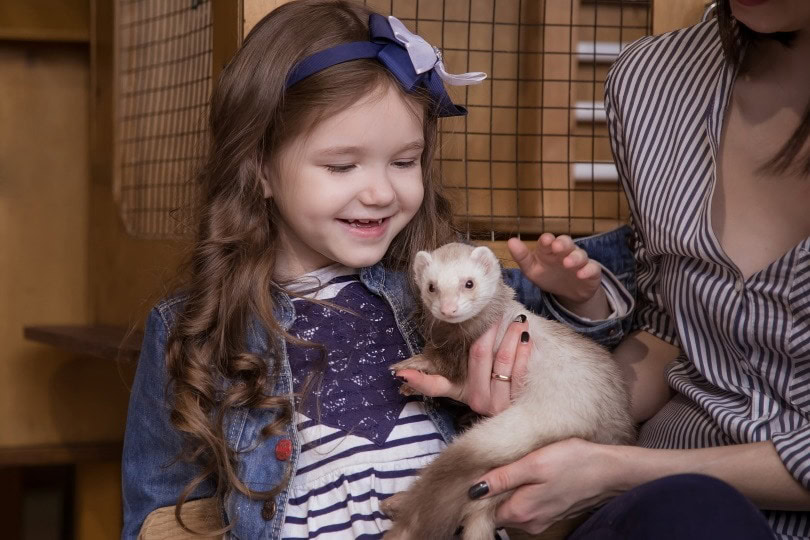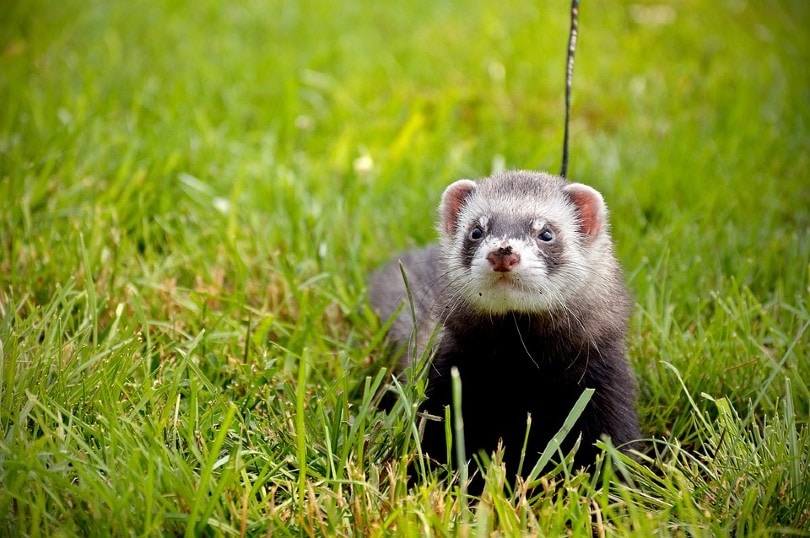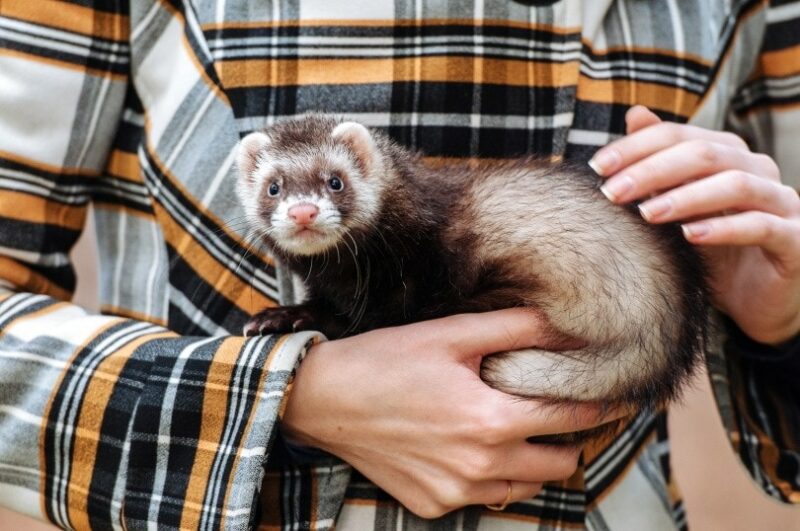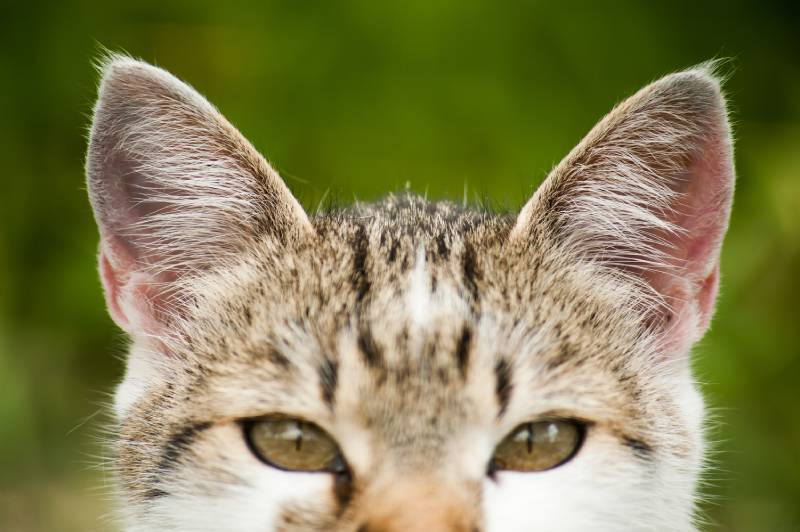VET APPROVED

The information is current and up-to-date in accordance with the latest veterinarian research.
Learn more »Click to Skip Ahead
Ferrets are highly social animals with tons of personality. It’s not hard to become a fan! However, if you’re an allergy sufferer or just don’t like hair on your belongings, you have to think about shedding.
Ferrets do shed naturally, and there’s plenty to know about ferret care and grooming. These animals aren’t genetically hairless, though certain conditions can cause hair loss. Let’s go over what you can expect when you own one of these cute critters.

A Ferret’s Coat

Ferrets have a dense double coat consisting of a soft undercoat and longer, coarser guard hairs. This coat provides effective insulation, helping them regulate their body temperature in different environments. Due to this composition, these critters usually have two major molting seasons every year. The volume of shed fur increases in the spring and fall months as the animal loses and regrows hair appropriate for the oncoming season. The hair may appear as loose fur and it may also thin out in bulk, leaving large clumps. During both changes, you should keep up with routine brushing to keep your ferret comfortable.
Unfortunately, if you’re looking for an animal with minimal shedding, a ferret isn’t for you. But on a regular day, their shed isn’t anything that you can’t deal with by keeping up their grooming.
Brushing Your Ferret
During high shed months, it’s imperative to brush your ferret daily. It will keep the hair under control, preventing transmission to materials around your house. But more importantly, it reduces the risk of hairballs and keeps your ferret more comfortable. Ferrets typically adore a good petting session, so they shouldn’t resist too much. However, the sooner you acclimate them to brushing, the better.
You can use any small pet brush that your little one finds comfortable, or you can use a brush specifically for small animals. On top of keeping your ferret brushed, you should trim their nails.

Ferrets & Hair Loss
There are hairless cats and dogs, but are there hairless ferrets? The truth is that yes, ferrets can be hairless, but this is not a breeding choice. Rather, it’s a product of other underlying conditions.
Ferret Adrenal Disease
Ferret adrenal disease causes total hair loss and it’s detrimental to the breed. Hair loss usually starts on the tail and works its way up.
Ferret Rat Tail
Hair loss on the tail, often called “rat tail,” is a common early sign of adrenal disease. While mild seasonal shedding can occasionally cause tail thinning, persistent or progressive hair loss may signal an underlying medical issue. It’s best to have your vet check your ferret to catch any problems early.
Yeast Infections
Yeast infections of the skin cause a bacterial build-up, and it can lead to patchy hair loss. If your ferret suddenly develops hair loss, always seek veterinary attention to determine the underlying condition.


Conclusion
Even though ferrets shed, general upkeep should be a breeze. You can lightly brush your ferret every day to reduce the majority of the problem. Remember that ferrets have two molting periods in spring and fall. Their shedding will be much heavier until their coats change over.
Certain health issues cause hair loss, but there is no such thing as a hairless mutation in ferrets. If your ferret has a thinning or balding coat, contact your veterinarian for advice.
See Also:
- Can Ferrets Swim? & Do They Like It?
- Do Ferrets Smell?
- 10 Ferret Health Problems: Illnesses & Diseases (Vet Answer)
Featured Image Credit: Mitskevich Uladzimir, Shutterstock










